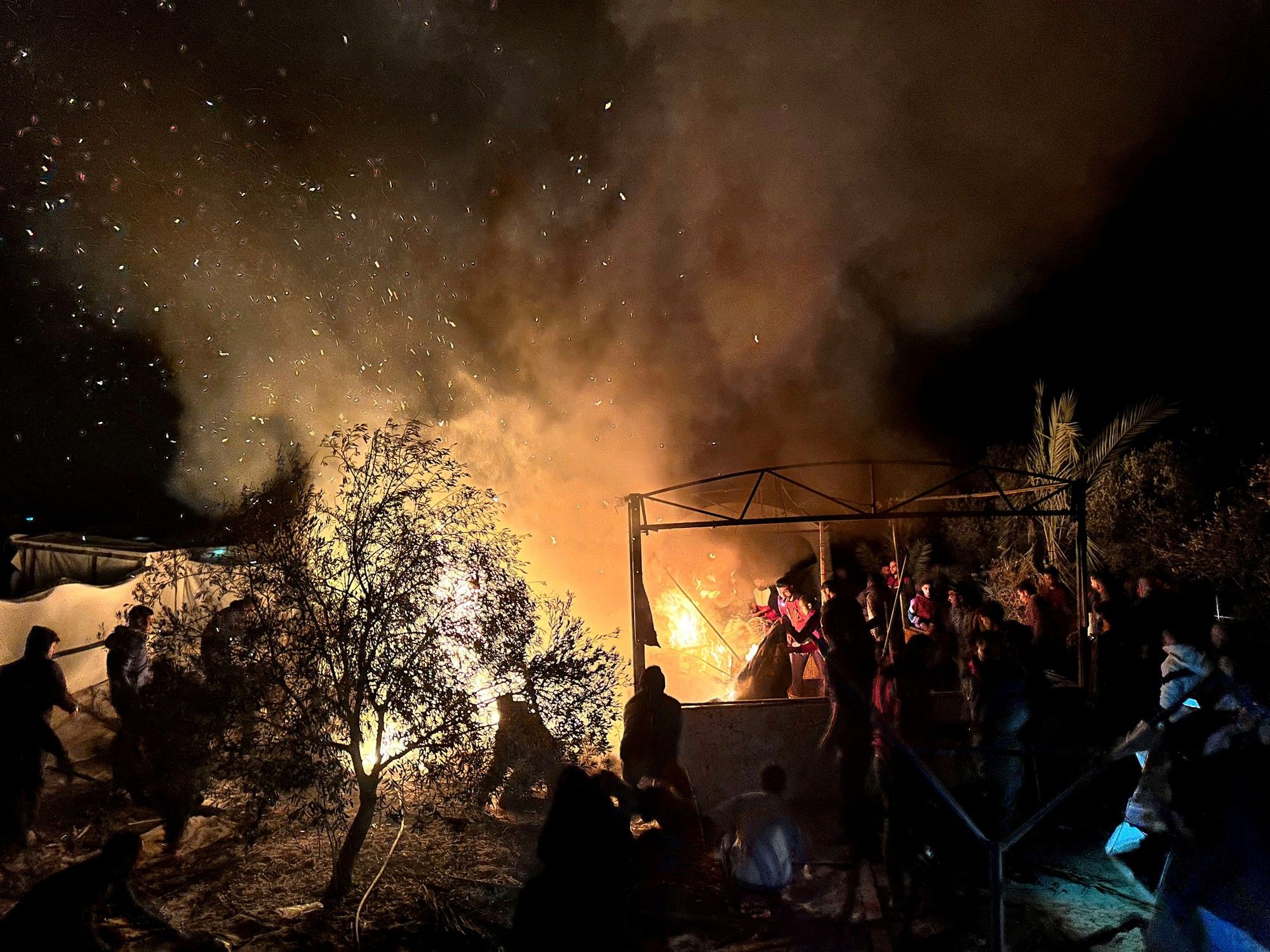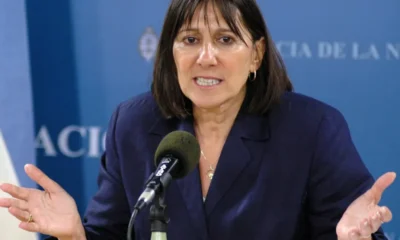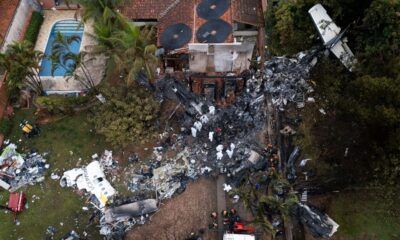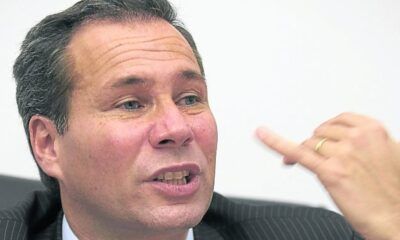INTERNACIONAL
Afghanistan’s Taliban leaders issued different messages for Eid. Experts say that shows tensions

KARACHI, Pakistan (AP) — Messages by two influential Taliban leaders in Afghanistan this week showed tensions between hardliners and more moderate elements who want to scrap harsher policies and attract more outside support, experts said Thursday.
The messages for Eid al-Fitr marking the end of Ramadan were delivered by supreme leader Hibatullah Akhundzada, who defended the imposition of Islamic law and railed against the international community for its criticism, and Interior Minister Sirajuddin Haqqani, who called on the Taliban to be humble and avoid behaving in ways that make Afghans unhappy.
TALIBAN VOWS TO PUBLICLY STONE WOMEN TO DEATH IN DIRECT MESSAGE TO WESTERN DEMOCRACIES
The Taliban seized power in 2021 amid the chaotic withdrawal of U.S. and NATO forces after two decades of war. Their rule, especially bans affecting women and girls, has triggered widespread condemnation and deepened their international isolation.
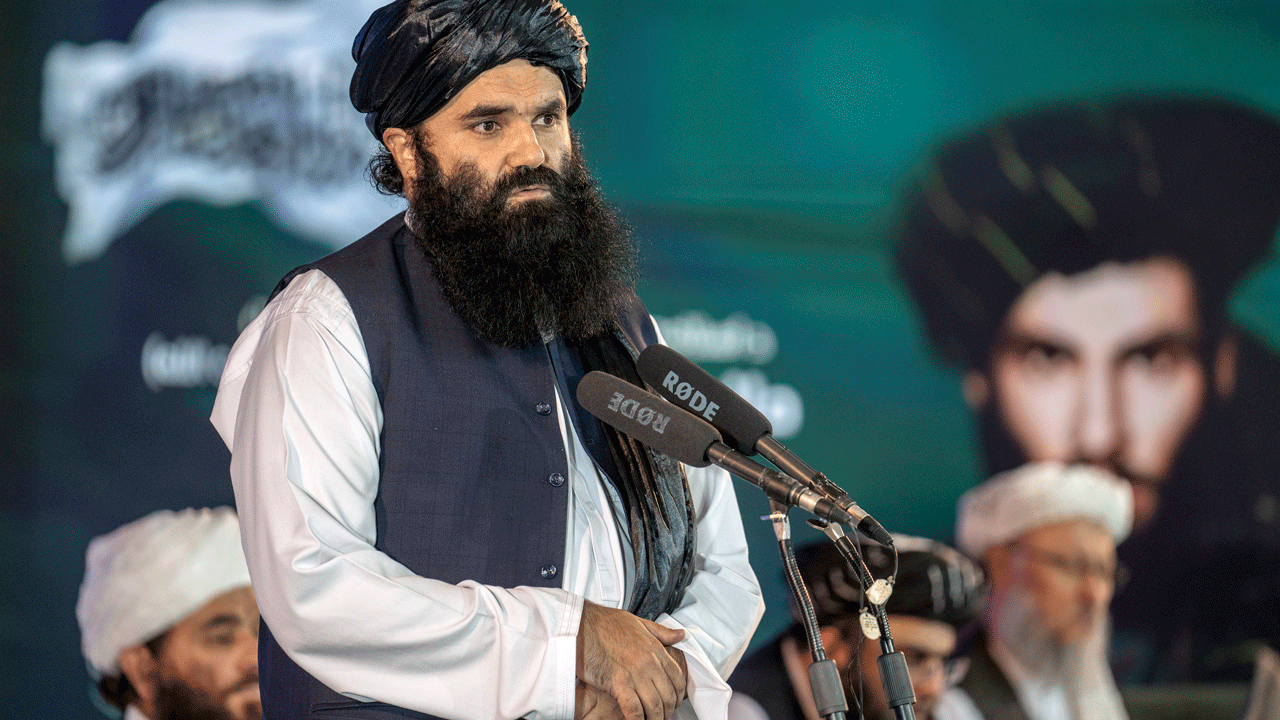
Afghan Taliban’s Acting Minister of Interior Sirajuddin Haqqani speaks during a ceremony in Kabul, Afghanistan, May 11, 2023. Messages by two influential Taliban leaders in Afghanistan this week showed tensions between hardliners and more moderate elements who want to scrap harsher policies and attract more outside support, experts said Thursday, April 11, 2024. (AP Photo/Ebrahim Noroozi)
The reclusive Akhundzada released two messages for Eid. In the first, a written statement issued on Saturday in seven languages including Arabic, English, Turkmen and Uzbek, he was conciliatory and pragmatic, with measured advice for officials in the Taliban-controlled administration.
He issued the second in a rare public appearance on Wednesday at Eidgah Mosque in the Taliban heartland of Kandahar in the south. His Eid sermon, a half-hour address in Pashto, was more in keeping with the tone and content of his past fiery messages.
«If anyone has any issues with us, we are open to resolving them, but we will never compromise on our principles or Islam,» he said. «At the same time, we don’t expect Islam to be disrespected. I won’t even take a step away from Shariah (Islamic law). They (the international community) object to it, saying public stoning and amputation are against their laws and human rights. You expect us to follow your laws while imposing them on us.»
Akhundzada is almost never seen in public. There are no photos from his address, and his face was concealed from the thousands of worshipers.
Haqqani released his Eid message on Wednesday in Afghanistan’s commonly spoken languages of Dari and Pashto. He called on the Taliban to avoid creating a rift between the people and authorities. And, unlike Akhundzada, he referenced the challenges facing the country.
«We know that after nearly half a century of problems and difficulties, we cannot easily and urgently expect the kind of life and possibilities we wish for, but the important thing is that the (Islamic) system and the whole nation are working to fulfill these wishes,» he said.
Michael Kugelman, director of the Wilson Center’s South Asia Institute, said Haqqani, by attempting to show a softer side, was looking to draw trust and support from a broader Afghan public aware of the Taliban’s «brutal form» of governance. But for Akhundzada, the Eid sermon was about consolidating support and loyalty in his circle.
The messages also had a global audience in mind. The Haqqani network seeks investment and aid from the international community, Kugelman said.
«Projecting a softer side is likely meant to make potential donors more comfortable. With the emir (Akhundzada) it’s about signalling that the Taliban’s social agenda, especially its abhorrent policies toward women, isn’t up for negotiation,» he said.
The Taliban have barred women from education beyond sixth grade, most jobs and public spaces like parks. They have implemented corporal punishment and public executions, practices seen during their first period of rule in the late 1990s. The economy is now in decline and Afghans are experiencing drought, hunger, and displacement on a massive scale.
Pakistani journalist and author Ahmed Rashid, who has written several books about Afghanistan and the Taliban, said the two leaders were sending a strong message to the faithful that nothing has changed despite pressure from the West.
«There are clearly divisions within the Taliban but they’re holding together,» Rashid said. «There are moderate elements that want to see women educated, but they’re not in a strong position so they’re biding their time.»
He described Akhundzada as a skilled communicator who used his mosque training to great effect. «It’s how he establishes his writ. But he doesn’t answer questions that people are asking. There are elements of Afghan society who want something better.»
Haqqani has previously spoken out against the Taliban’s leadership and decision-making process, drawing a rebuke from chief spokesman Zabihullah Mujahid.
But Haqqani didn’t overstep in his Eid message, according to Rashid. «He is on the periphery, but he is very popular. His support base is pushing him forward.»
CLICK HERE TO GET THE FOX NEWS APP
The Taliban’s double messaging is also part of a skillful campaign to show they have influence and clout at home and abroad, he said: «They’re saying, ‘We can spread the word.’ They have done this with pride and conviction.»
No country recognizes the Taliban as the legitimate government of Afghanistan. But some important regional players, including China, Iran and Pakistan, have formal diplomatic relations with them.
INTERNACIONAL
El grupo terrorista Hamas dio pruebas de vida de rehenes a Israel
-
POLITICA3 días ago
El descargo de Longobardi tras su salida de Radio Rivadavia: «Me hizo acordar cuando Cristina ejecutó mi despido en Radio 10»
-
INTERNACIONAL2 días ago
Atropello múltiple en un mercado de Navidad en Alemania: al menos dos muertos y más de 60 heridos
-
POLITICA2 días ago
Guillermo Castello: «Kicillof está utilizando la caja de la provincia para posicionarse políticamente»
-
POLITICA1 día ago
Nisman: el Gobierno acepta el pedido del fiscal y levanta el secreto sobre los espías inorgánicos de la SIDE y el Ejército
-
CHIMENTOS2 días ago
Se confirmó el escandaloso motivo de la crisis entre Javier Milei y Yuyito González: «Él estaba cerca de Graciela Alfano»
-
POLITICA13 horas ago
El Gobierno reveló los pasos para salir del cepo cambiario y alcanzar la “flotación limpia”: cuáles son













